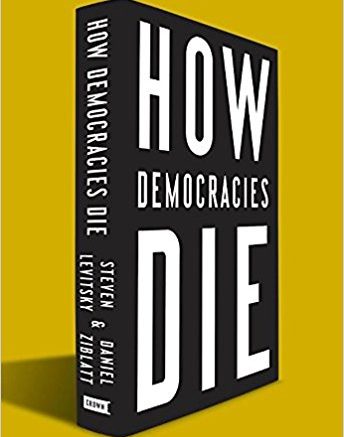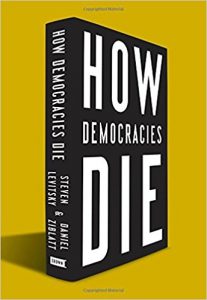“Polarization can destroy democratic norms. When socioeconomic, racial, or religious differences give rise to extreme partisanship, in which societies sort themselves into political camps whose worldviews are not just different but mutually exclusive, toleration becomes harder to sustain. Some polarization is healthy — even necessary — for democracy. And indeed, the historical experience of democracies in Western Europe shows us that norms can be sustained even when parties are separated by considerable ideological differences.
“But when societies grow so deeply divided that parties become wedded to incompatible worldviews, and especially when their members are so socially segregated that they rarely interact, stable partisan rivalries eventually give way to perceptions of mutual threat. As mutual toleration disappears, politicians grow tempted to try to win at all costs. This may encourage the rise of antisystem groups that reject democracy’s rules altogether. When that happens, democracy is in trouble.”
— Steven Levitsky & Daniel Ziblatt, “How Democracies Die” 2018 (pp. 115-116)


